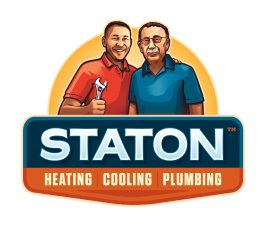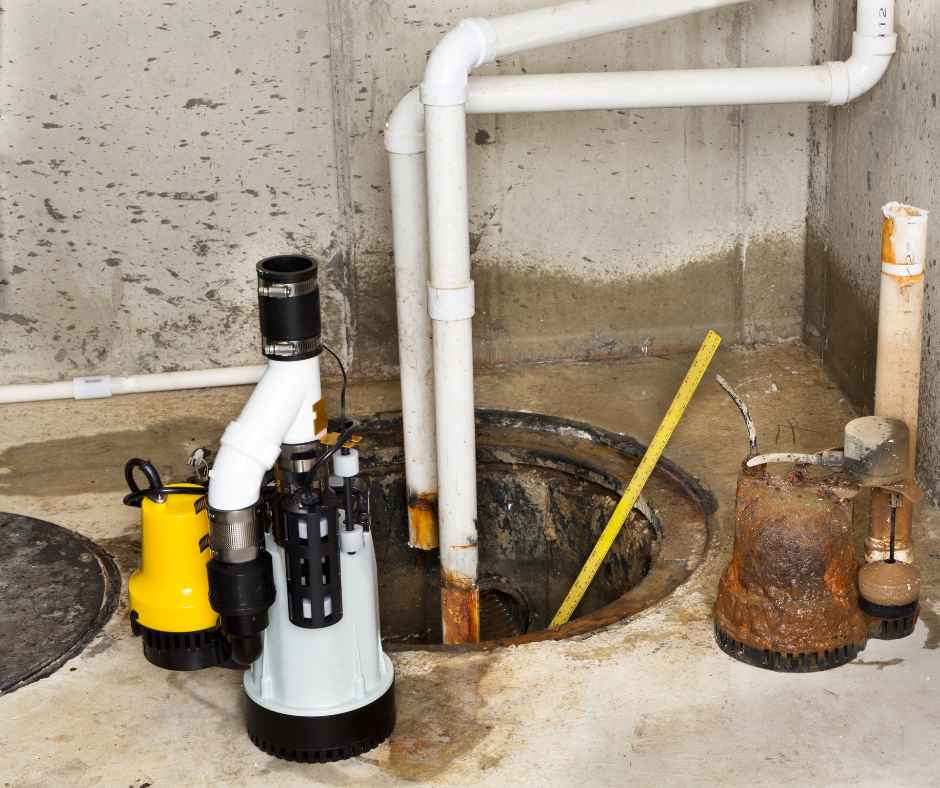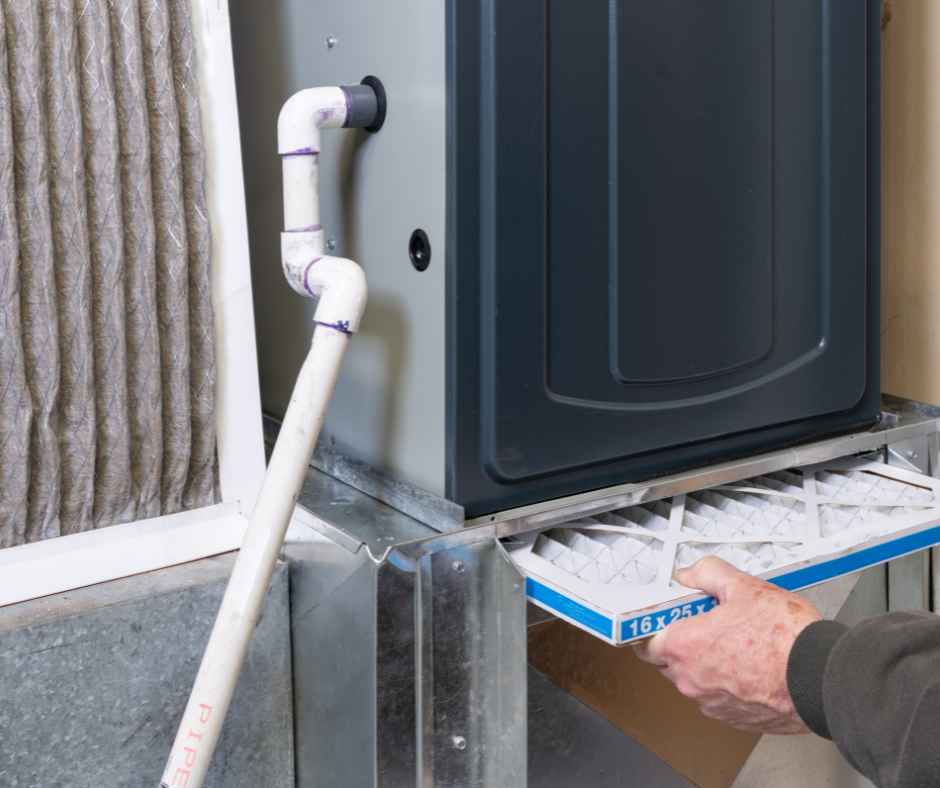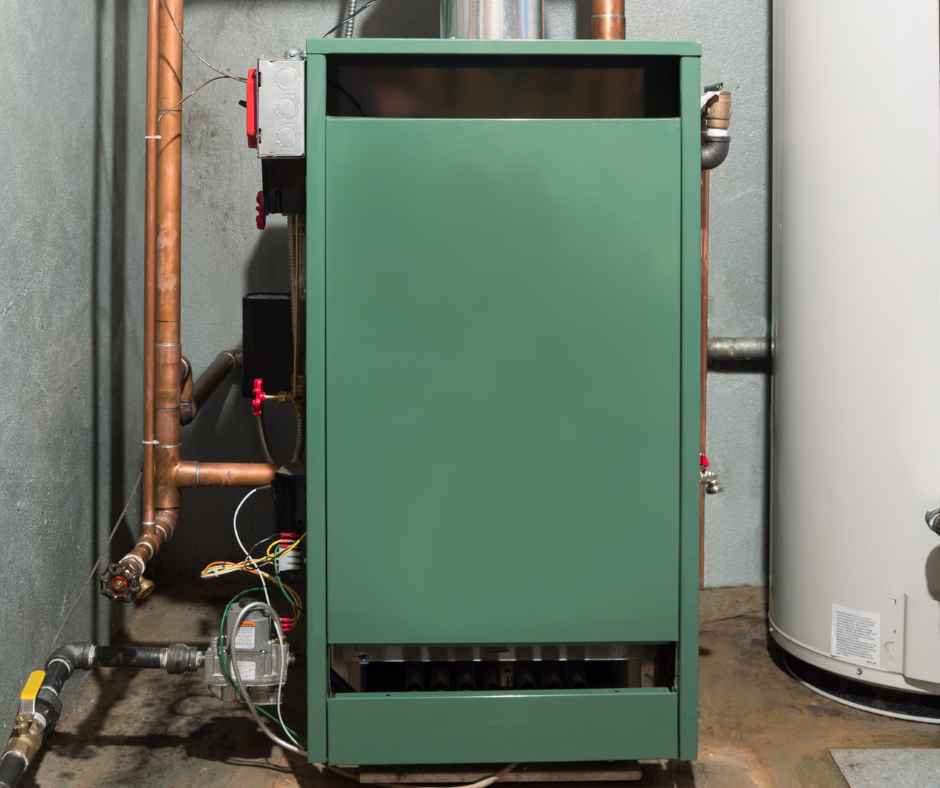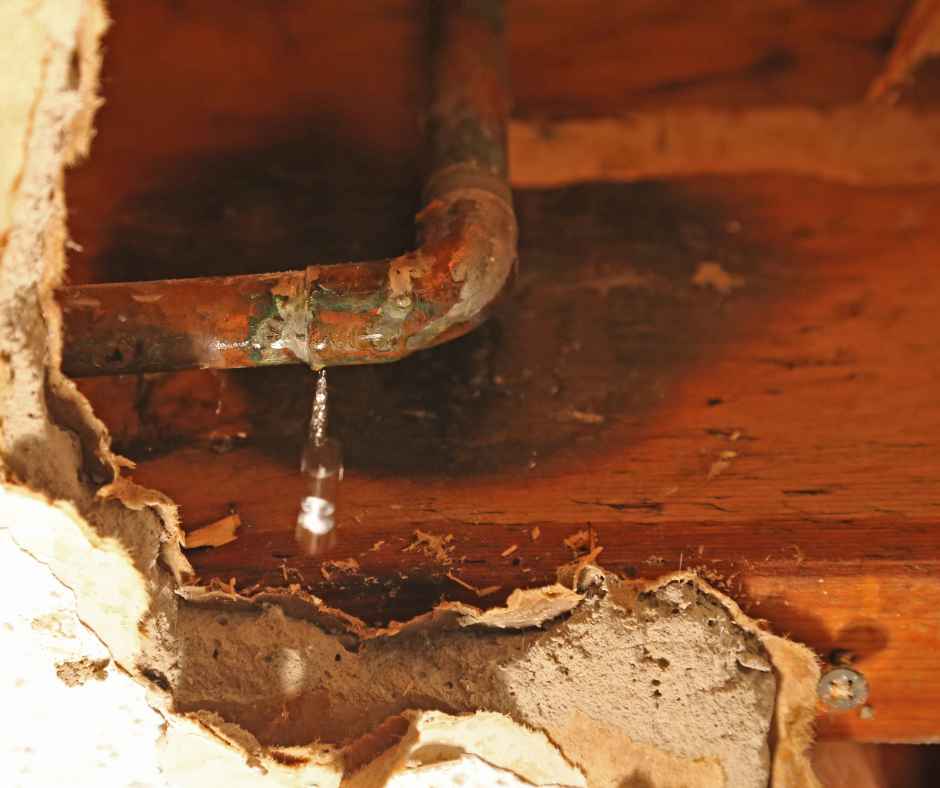0% APR Plus No Payments for 12 Months
on Select New Plumbing & HVAC Systems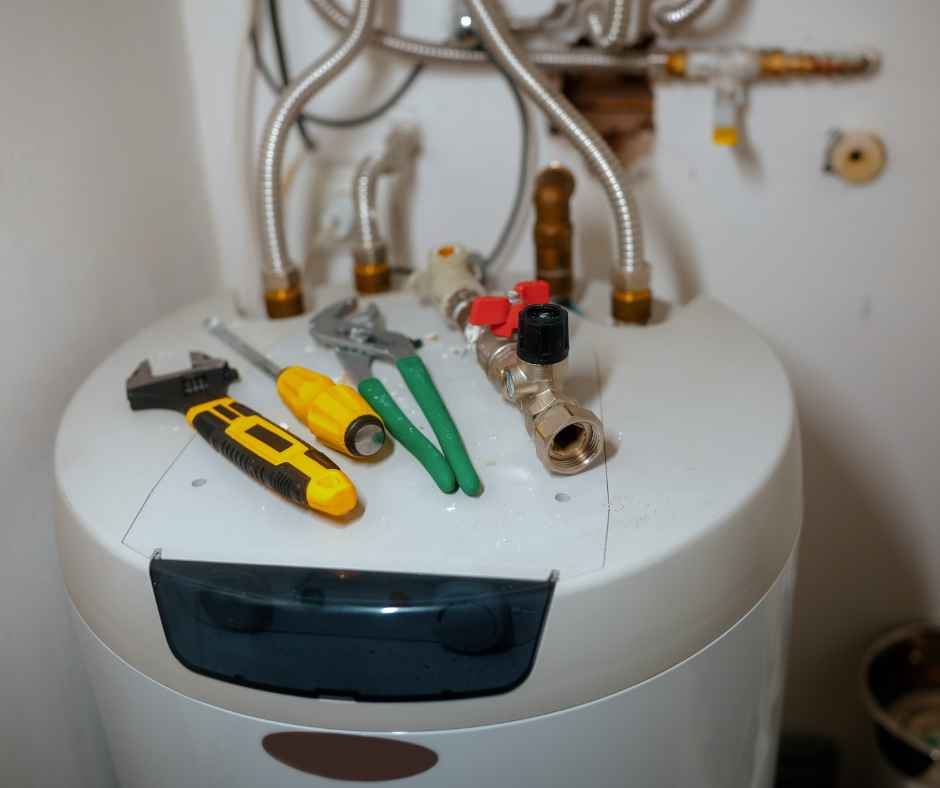
The Complete Homeowner’s Guide to Preventing Plumbing Emergencies (and Costly Repairs)
Plumbing disasters never seem to happen at a convenient time, and they often lead to costly repairs, water damage, and a whole lot of stress. The good news? Most plumbing emergencies can be prevented with a little preparation and regular maintenance. In this blog, we’ll cover the most common problems homeowners face, practical steps you can take to avoid them, and a simple plumbing checklist you can follow to keep your system running smoothly all year long.
Whether you live in Columbia, Ellicott City, Glen Burnie, Bowie, or Annapolis, these tips will help you protect your home from expensive plumbing problems.
What Are the Most Common Plumbing Emergencies?
Plumbing problems come in many forms, but a few tend to strike more often and with more severe consequences than others. By knowing what to watch for, you can take action early and prevent a minor issue from turning into a full-blown emergency.
Burst Pipes
One of the most damaging plumbing emergencies is a burst pipe. It often happens in winter when water inside the pipes freezes, expands, and forces the pipe to crack or break. Burst pipes can release gallons of water in minutes, flooding basements and damaging walls or flooring. Insulating exposed pipes and keeping your home heated, even when you’re away, are two of the simplest ways to prevent this disaster.
Homeowners in colder-prone areas like Easton and Cambridge on the Eastern Shore should pay particular attention to this risk.
Sewer Line Backups
A clogged or broken sewer line can cause wastewater to back up into sinks, tubs, or floor drains. Aside from the obvious mess, sewer backups pose serious health risks. Common causes include tree roots infiltrating old pipes, grease buildup, and flushing items that don’t belong in the system. Scheduling regular inspections and being mindful about what goes down the drain are key to prevention.
Communities such as Towson, Dundalk, and College Park often experience heavy sewer usage, making preventive maintenance even more important.
Clogged Drains and Toilets
Everyone deals with a clogged drain or toilet at some point, but recurring or severe clogs can signal bigger issues. For example, frequent toilet backups may mean there’s a deeper blockage in the main sewer line. While plungers can fix simple clogs, persistent ones need professional attention to avoid costly repairs later.
Water Heater Failures
No hot water is inconvenient, but a leaking or ruptured water heater can be an emergency. Sediment buildup, corrosion, and aging tanks are common culprits. Regular flushing and inspections extend the life of your unit and reduce the risk of sudden breakdowns.
Sump Pump Overflows
A sump pump failure during heavy rain can quickly lead to basement flooding. Power outages, mechanical breakdowns, or lack of maintenance are common causes. Testing your sump pump seasonally and having a backup power source can help you stay protected.
How to Prevent Plumbing Problems Before They Start
The best way to avoid a plumbing emergency is through prevention. While some issues are inevitable with age and wear, many problems can be avoided with consistent maintenance and smart habits. Here are proven steps homeowners can take to keep plumbing systems running smoothly year-round, whether you’re in Baltimore, Annapolis, or Bowie.
1. Schedule Regular Inspections
Even if nothing seems wrong, a quick look from a licensed plumber can catch leaks, corrosion, or loose connections before they escalate. Inspections are especially important for older homes with original plumbing. A small leak under a sink may look harmless but could be wasting gallons of water every day.
2. Prepare for Seasonal Changes
- Winter: Insulate exposed pipes in basements, crawl spaces, and garages to prevent freezing. Let faucets drip slightly during extreme cold to keep water moving.
- Spring: Test your sump pump before heavy rainstorms hit. Clear gutters and downspouts to reduce pressure on drains.
- Summer: Look out for tree roots growing into sewer lines, especially in older neighborhoods in Dundalk and Towson.
- Fall: Flush your water heater to remove sediment before winter demand increases.
3. Maintain Your Water Heater
Sediment buildup reduces efficiency and shortens the life of a water heater. Flushing the tank once a year can help prevent leaks, strange noises, and sudden breakdowns. If your heater is over 10 years old, it may be time to consider replacement before it fails completely.
4. Practice Smart Disposal Habits
What goes down your drains can make or break your plumbing system. Avoid:
- Pouring grease, oils, or fats into sinks (they harden and clog pipes).
- Flushing wipes, cotton balls, or feminine products (even if labeled “flushable”).
- Using harsh chemical drain cleaners that can damage pipes.
Instead, use drain strainers to catch hair and debris, and rely on professional drain cleaning when needed.
5. Don’t Ignore Small Warning Signs
A slow drain, gurgling toilet, or low water pressure may seem minor, but these are often the first red flags of bigger problems. Acting quickly can prevent emergencies like sewer backups or burst pipes.
DIY Fixes vs. When to Call a Professional Plumber
Homeowners in places like Columbia, Ellicott City, and Glen Burnie can handle small plumbing fixes themselves, but bigger issues require a pro.
Safe DIY Plumbing Fixes
There are a few minor problems most homeowners can handle with the right tools and a little know-how:
- Clogged drains or toilets: A plunger or drain snake can clear small blockages.
- Leaky faucets: Replacing a worn washer or cartridge is a straightforward repair.
- Running toilets: Often caused by a faulty flapper, which is inexpensive and easy to replace.
- Showerhead buildup: Soaking in vinegar overnight can remove mineral deposits.
These quick fixes are low-risk and usually don’t require professional training.
When to Call a Professional Plumber
Some plumbing issues are too complex or too risky to attempt on your own. Contact a licensed plumber from Staton Plumbing, Heating & Cooling if you notice:
- Recurring or severe clogs that don’t respond to plunging or snaking.
- Sewer odors coming from drains, which can indicate a broken or blocked sewer line.
- Low water pressure throughout the house, suggesting a larger system problem.
- Leaks inside walls, ceilings, or floors, where hidden water damage can lead to mold and structural issues.
- Water heater leaks, noises, or failures, which often require specialized knowledge and tools.
Why Knowing the Difference Matters
Attempting DIY repairs on major plumbing systems can cause bigger problems and cost more to fix later. A good rule of thumb: if you are not completely confident in the repair, it is safer to call in a professional.
Essential Plumbing Maintenance Checklist for Homeowners
Preventive maintenance is one of the simplest ways to avoid plumbing emergencies. By following a consistent schedule, you can catch small issues before they grow into costly repairs. Here’s a checklist you can use to keep your plumbing system in good shape all year long.
Monthly Tasks
- Check under sinks and around toilets for leaks or moisture.
- Run water in rarely used sinks, tubs, or showers to keep traps filled and prevent sewer odors.
- Test water pressure in faucets and showers; sudden drops may signal a hidden leak.
Quarterly Tasks
- Clean faucet aerators and showerheads to remove mineral buildup.
- Test your sump pump by pouring a bucket of water into the pit to ensure it activates.
- Inspect exposed pipes in basements, crawl spaces, and utility rooms for rust or corrosion.
Seasonal Tasks
- Spring: Check outdoor spigots and hoses for leaks after winter.
- Summer: Inspect sewer lines for root intrusion and schedule drain cleaning if needed.
- Fall: Flush your water heater to remove sediment buildup.
- Winter: Insulate exposed pipes and disconnect garden hoses before freezing weather arrives.
Annual Tasks
- Schedule a professional plumbing inspection to evaluate the entire system.
- Test your water quality, especially if you rely on a well.
- Review the age and condition of your water heater, sump pump, and other major equipment.
Final Thoughts: Protect Your Home from Costly Repairs
Plumbing emergencies are stressful, expensive, and often avoidable. By understanding the most common problems, following preventive maintenance steps, and knowing when to call a professional, you can protect your home and your budget. A little routine care goes a long way toward avoiding burst pipes, sewer backups, or water heater failures.
If you notice warning signs like recurring clogs, unusual odors, or leaks that won’t go away, don’t wait for the problem to escalate. Schedule an inspection with a licensed plumber who can identify and fix issues before they turn into emergencies.
At Staton Plumbing, Heating and Cooling, we’ve been helping homeowners across Howard County, Baltimore County, Anne Arundel County, Prince George’s County, and the Eastern Shore, from Bowie to Catonsville, keep their plumbing systems running safely and efficiently for decades.
Contact Staton today to schedule your plumbing service and keep your home protected year-round.
Frequently Asked Questions About Plumbing Emergencies
What is the average cost of a plumbing emergency?
Plumbing emergency costs vary depending on the issue. Minor fixes, like clearing a clogged drain, may be a few hundred dollars, while major problems, such as a burst pipe or sewer line repair, can reach several thousand. The best way to save money is through prevention and early detection.
How often should I replace my home’s plumbing pipes?
The lifespan of plumbing pipes depends on the material. Copper pipes can last 50 years or more, while galvanized steel pipes typically last 20–50 years. If your home is older and still has original piping, it may be time for an inspection to determine whether replacement is necessary.
Can tree roots really damage my plumbing system?
Yes. Tree roots naturally seek out water sources and can invade sewer lines through small cracks or joints. Over time, this can cause major blockages and even pipe collapse. If you have older clay or cast-iron sewer pipes, scheduling periodic inspections is the best prevention.
Does homeowner’s insurance cover plumbing emergencies?
It depends on the cause. Insurance often covers sudden and accidental water damage, such as a burst pipe, but usually excludes gradual wear and tear or lack of maintenance. Always check your policy details and consider riders if you’re concerned about coverage.
How do I shut off my home’s water supply in an emergency?
Most homes have a main water shut-off valve located in the basement, garage, or near the foundation where water enters the house. Turning this valve clockwise will stop the water supply, preventing additional flooding until a plumber can make repairs.

